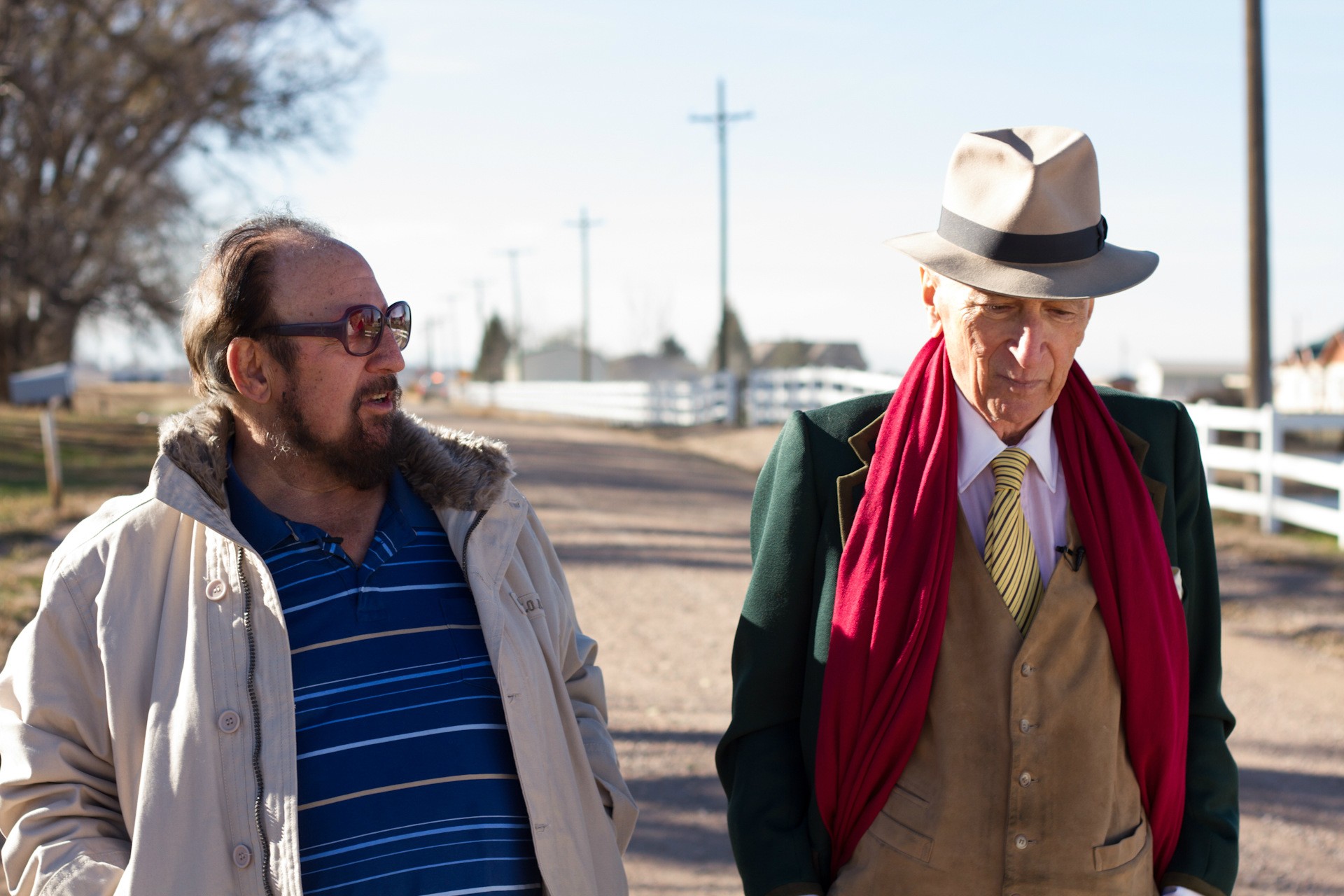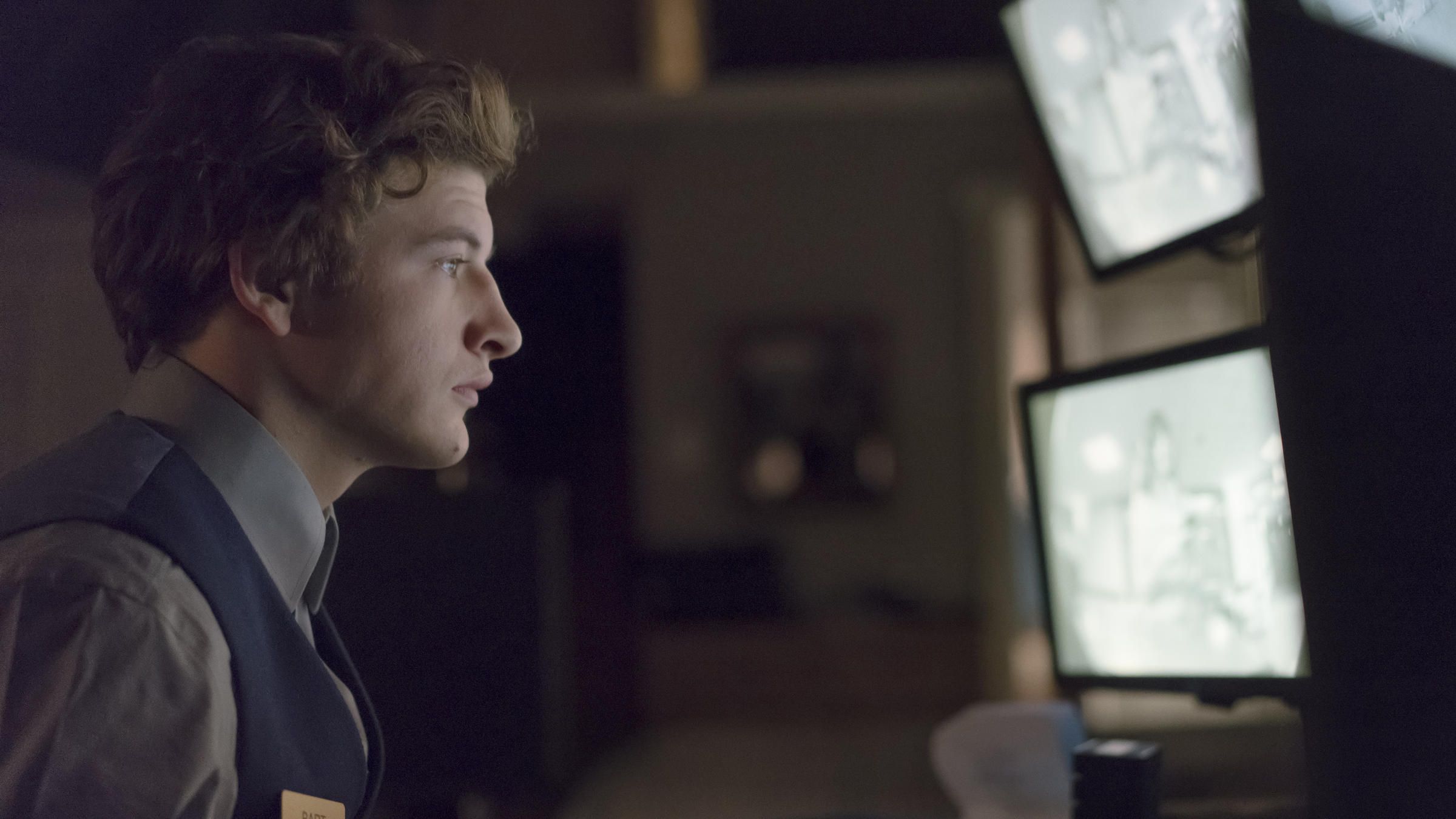‘The Night Clerk’ is a crime drama that follows the story of a young man named Bart. He has Asperger’s, which means that he struggles to have conversations as easily as others. But this is something that he wants to overcome, and he has come up with a unique idea for that- studying the hotel guests through hidden cameras. It works very well in the beginning, but proves to be hazardous in the long run.
With the safety in hotels already under suspicion, this film elevates this fear even further. It also makes us question whether something like this has ever happened in real-life or is it just an extension of the filmmaker’s own paranoia? Is ‘The Night Clerk’ based on true events? Here’s what you should know.
Is The Night Clerk Based on a True Story?
No, ‘The Night Clerk’ is not based on a true story. It is based on an original screenplay by Michael Cristofer, who also serves as the director of the film. The film works like a noir and seems to share some similarities with Alfred Hitchcock’s ‘Psycho’. Bart would spy on his guests just like Norman Bates, though not with the intention of murdering them in the shower.
While the film is fictional, its premise is a rather common thing to happen in hotels, where guests have to be wary of hidden cameras in their rooms. While most hotels try to deny their indulgence in such activities, there was one person who opened up his story to the world. His name was Gerald Foos.
Who is Gerald Foos?

In 1966, Gerald Foos got the keys to the place that he would turn into his personal laboratory, conducting the experiments of which hundreds of people have been a part of, without them ever knowing about it. For over two decades, he ran the Manor House Motel in Aurora, Colorado. The place had 21 rooms, and in about half of those, Foos had created a path for himself to become the spectator of the sexual activities of his guests. There was a custom made platform in the rooms that would allow him to peek through the ventilation grates.
In the movie, we come to know about Bart’s practice of spying on guests when he intentionally changes the room number for Karen to the one where he can see her. In the recordings, we see that Bart has recorded couples as well as families and single visitors. He does tend to direct the guests to the particular room when he can, but he is not very keen on it. Foos, on the other hand, was very picky about his subjects. From the looks of the guests, he would decide which ones are good enough, and then, would spend entire nights spying on them.
While Bart was doing this to get better at communication, Foos’s subject matter was entirely sexual in nature. In fact, he kept records of all the people he had watched, compiling the data in the form of a survey. He called himself a voyeur and did not account his activities as perversion but as experimentation.
In 1980, he reached out to journalist Gay Talese after having read one of his works, with sex as its primary subject matter. When Talese came to know about what Foos was doing, he found it an excellent opportunity to cover something that had never been witnessed before. They worked together for years, during which time Talese worked on his book, ‘The Voyeur’s Motel’. However, he didn’t publish it until 2016, when the statute of limitations had passed and no legal action could be pursued against them for whatever criminal activities they would have been held accountable for back then.
Another interesting thing that ‘The Night Clerk’ shares with Foos’ story is a murder. In the movie, when Bart sees a murder in progress, he tries to stop it. He forgets the implications of spying on others. In reality, however, Foos was pretty aware of the limits that his voyeurism created. No matter what happened to the guest, he simply could not indulge in it. He took it so seriously that once, he watched a murder happen inside the motel, but did not reveal the details to anyone!
Eventually, Foos discontinued his practice in 1995 after he sold the motel. The place has since been permanently closed for business. The story of Foos and Talese’s coverage of the matter serves as the premise of Netflix documentary, ‘Voyeur’, further sparking the perpetual doubt that guests have towards hotels.
Read More: The Night Clerk Ending, Explained


You must be logged in to post a comment.